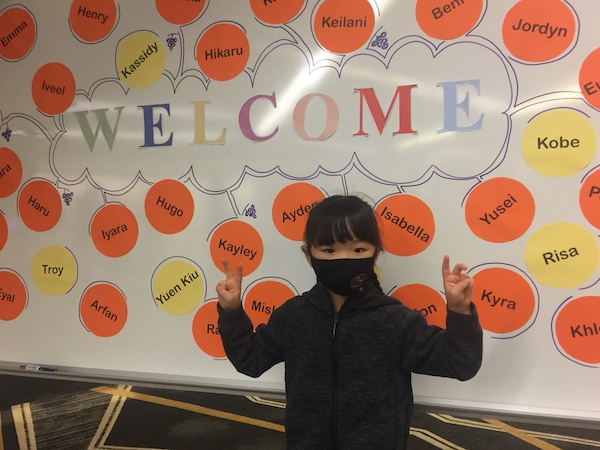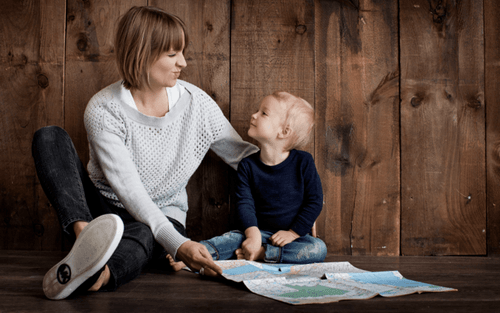Student well-being in primary school has a strong role to play in children’s academic success and socio-emotional development. At One World International School, we have worked hard to create an environment that promotes the well-being of each of our students – and we will be carrying that effort forward at the OWIS Suntec campus.
What is Well-Being?
There are many ways to define well-being. For this article, we define “well-being” as referenced in the widely-accepted World Health Organisation definition of mental health: “Mental health is defined as a state of well-being in which every individual realises his or her own potential, can cope with the normal stresses of life, can work productively and fruitfully and is able to make a contribution to her or his community.”
Well-being can be divided into several categories, including emotional, physical and social well-being and so on. Emotional well-being is the ability to manage one’s emotions and feel happiness. Physical well-being is the ability to take care of oneself with a good diet and healthy habits. Finally, social well-being is the ability to develop a social network that is meaningful and rewarding.
The different aspects of school-going children’s well-being

While adolescents and teenagers have to deal with the stress of academic pressure, peer relationships and any change of circumstances in their homes, younger children also have emotional reactions to positive and negative changes. For instance, the transition from Early Childhood to Primary or Primary to Secondary grades or the changing of schools during relocation could cause some anxiety in children.
Student well-being during the pandemic has been a major point of concern for parents and educators. Since 2020, students have endured frequent school closures, social distancing in classrooms and sports, disruptions to their regular schedule, inability to participate in certain classes (like band practice, chorus, etc.) and travel restrictions that have prevented them from visiting family members, friends and loved ones.
Children can suffer a variety of problems due to the stress they’ve experienced in the last year. Some may have trouble sleeping, others may develop clingy behaviour, irritability or may become withdrawn.
At home, parents can check in with their children and encourage them to talk about their day and difficulties. Further, a balanced diet and healthy habits such as exercise and a good night’s rest have a role to play in the overall well-being of children.
What is the role of schools in promoting well-being?
Students are with their teachers five days a week, so it’s no surprise that schools play an essential role in the well-being of their students:
- By educating students to help them make healthy lifestyle choices, schools can have a positive influence on students.
- Schools can also provide students with information and activities to help them understand their own well-being, and become emotionally healthier people.
- Schools can incorporate positive practices like collaborative learning, personalised learning, student agency, giving back to the community, meaningful constructive feedback, therapy through the arts, buddy system and counselling.
Overall, student well-being enhances intrinsic motivation, decreases disciplinary problems, increases academic achievement, improves school satisfaction and leads to flourishing individuals, communities, and nations (Buecker et al., 2018).
Students who are emotionally healthy are better able to flourish in the classroom, are less likely to experience mental or emotional distress in times of adversity, and are more likely to seek help for themselves when they need it.
OWIS Suntec’s Approach to Student Well-being
At OWIS Suntec, we are also taking a whole school approach to create a safe and inclusive learning culture and environment. We build confidence and a positive self-image through engaging activities and opportunities for child-directed learning. We check in regularly with our students studying in primay school Singapore. We also supply them with creative outlets for their anxieties through music and art programmes. We connect regularly with parents to help ensure they and their children are managing well.
Students at OWIS Suntec will have structure and routine because it is essential for students to feel like their lives are predictable and safe. Children will be given regular opportunities to express their feelings, ask questions and get honest answers about the current stressors they are experiencing. All teachers at OWIS Suntec will model healthy behaviour for students as well.
Find Out More About How Your Child Can Benefit from OWIS Suntec
Student well-being will be front and centre in the priorities of teachers at OWIS Suntec. To find out more about how your child can benefit from a positive, supportive learning environment, be a part of the virtual open house.
This blog was originally written in collaboration with Mark Renie, former Head of School, OWIS Nanyang and Suntec.














